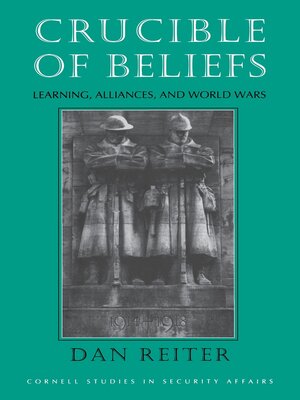Crucible of Beliefs
ebook ∣ Learning, Alliances, and World Wars · Cornell Studies in Security Affairs
By Dan Reiter

Sign up to save your library
With an OverDrive account, you can save your favorite libraries for at-a-glance information about availability. Find out more about OverDrive accounts.
Find this title in Libby, the library reading app by OverDrive.



Search for a digital library with this title
Title found at these libraries:
| Library Name | Distance |
|---|---|
| Loading... |
How do foreign policymakers learn from history? When do states enter alliances? Why have some small powers chosen to enter alliances whereas others have stayed neutral? In Crucible of Beliefs, Dan Reiter uses work in social psychology and organization theory to build a formative-events model of learning in international politics. History does inform the decisions of policymakers, he suggests, but it is history of a specific sort, based on firsthand experience in major events such as wars.
Tested against balance-of-threat theory, the leading realist explanation of alliance behavior, Reiter's formative-events model of learning emerges as a far better predictor of states' decisions. Crucible of Beliefs shows that, contrary to balance-of-threat theory, state leaders ignore the level of international threat and focus instead on avoiding past mistakes and repeating past successes. A serious blow to realism, these findings demonstrate that to understand the dynamics of world politics, it is essential to know how leaders learn from history.







